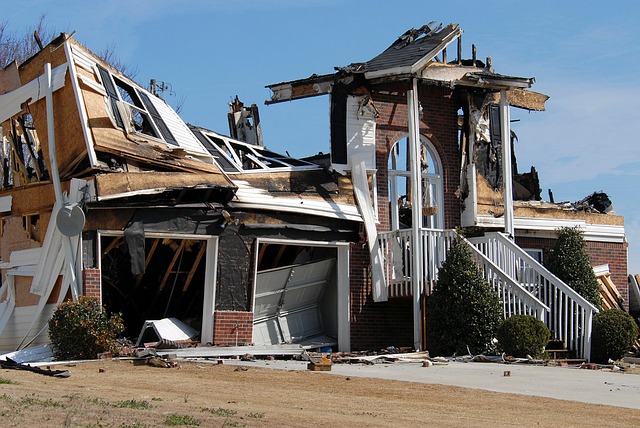When selling a California home damaged by fire, understanding the fire damage assessment process is crucial. This assesses repair costs and ensures fair pricing by evaluating structural integrity, systems, hidden damage, home age, materials, and local codes. Navigating legal and insurance considerations involves determining liability, disclosing defects, reviewing insurance coverage limits, and adhering to building codes. Strategically, prioritize visible repairs, offer incentives, set competitive prices based on market trends, and disclose all relevant information for a successful sale. For those asking "how do I sell my home due to fire damage California," this process is key to maximizing return while managing post-fire conditions.
Selling your home due to fire damage in California can seem daunting, but understanding the process is key. This article guides you through the critical steps of navigating a quick sale. We delve into fire damage assessments, exploring rapid sale options tailored to California’s real estate landscape. Additionally, we cover legal and insurance considerations specific to damaged properties. Learn effective strategies to maximize your return while efficiently transitioning from homeownership to a fresh chapter.
- Understanding Fire Damage Assessment in California Real Estate
- Exploring Rapid Sale Options for Homes Affected by Fire
- Legal and Insurance Considerations When Selling a Damaged Property
- Effective Strategies to Maximize Your Return on a Quick Sale
Understanding Fire Damage Assessment in California Real Estate

When facing a situation where your California residence has sustained fire damage, understanding the fire damage assessment process is crucial for navigating the sale of your property. This assessment determines the extent and cost of repairs required before putting your home on the market. It’s a critical step in ensuring you receive a fair price for your damaged asset. The process involves a thorough inspection by certified professionals who evaluate every aspect, from structural integrity to systems like electrical and plumbing.
Fire damage can be complex to assess due to its varying impact. Some considerations include identifying hidden damage, such as charred walls or damaged insulation, which could affect the overall structure. Assessors will also consider the age and type of materials in your home, as well as local building codes, to provide an accurate estimate. Knowing what to expect during this assessment can help homeowners prepare and make informed decisions when selling their property after a fire, ensuring a smoother transition in the California real estate market.
Exploring Rapid Sale Options for Homes Affected by Fire

If your California home has suffered fire damage, exploring rapid sale options can be a crucial step in recovering from this unexpected event. When time is of the essence and traditional selling methods might not be feasible, there are specialized companies that cater to homeowners in these situations. These firms offer solutions like cash offers or quick sales, allowing you to bypass the conventional real estate process.
Fire damage can render a property uninhabitable, creating a sense of urgency for homeowners. By reaching out to these expert buyers, you gain access to a network of investors ready to provide immediate relief. They assess your home’s condition and offer a fair price, often with flexible terms, ensuring a swift transition. This method is ideal for those who need to sell fast due to insurance constraints, time sensitivities, or the emotional weight of rebuilding after a fire.
Legal and Insurance Considerations When Selling a Damaged Property

When selling a damaged property, such as a home affected by fire in California, understanding legal and insurance considerations is paramount. The first step involves assessing potential liability. Fire damage often raises questions about responsibility—is it due to negligence or an unforeseen event? This determination can significantly impact the sales process and your pocket. In California, sellers are typically held responsible for disclosing known defects, so transparency is crucial.
Insurance plays a pivotal role in this scenario. Homeowners insurance might not cover all aspects of fire damage repair, especially if it was caused by negligence. Sellers should review their policies to understand coverage limits. For properties with extensive damage, selling may require updating insurance estimates and ensuring compliance with local building codes before attracting potential buyers who can navigate the legal intricacies and insurance requirements associated with purchasing a damaged property.
Effective Strategies to Maximize Your Return on a Quick Sale

When considering a quick sale due to fire damage in California, implementing strategic measures can significantly maximize your return. One effective approach is to focus on thorough repairs and renovations, even if it’s just cosmetic. Addressing visible fire damage, such as charred walls or roof repairs, instantly enhances the property’s appeal to potential buyers. A fresh coat of paint and updated fixtures can work wonders in transforming a damaged home into a desirable one.
Moreover, being transparent about the repair process and providing detailed documentation can build trust with interested buyers. Offering incentives like a lower price or including specific repairs in the sale contract might attract fast-moving purchasers who understand the benefits of a quick turnaround. Staying informed about market trends and comparable sales in your area also allows you to set a competitive yet profitable asking price, ensuring a successful fire damage home sale in California.
When facing fire damage to your California home, navigating the selling process can seem daunting. However, understanding the specific considerations for selling a damaged property in this state is key to making an informed decision. By exploring rapid sale options, knowing legal and insurance obligations, and implementing effective strategies to maximize returns, you can efficiently navigate this challenging situation. Remember, whether you choose to repair and sell or opt for a quick sale, there are solutions available to help you move forward after a fire has affected your home in California.






